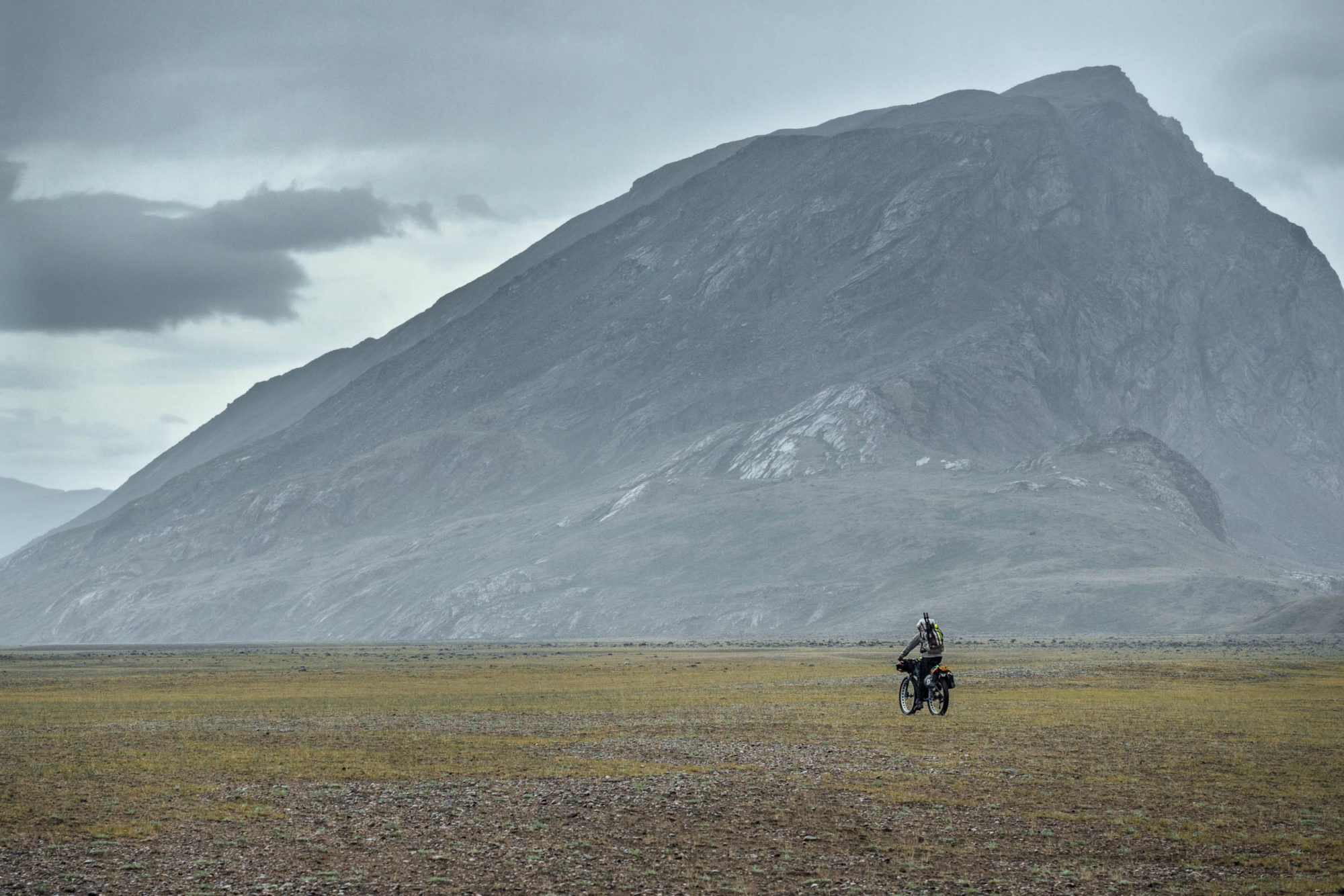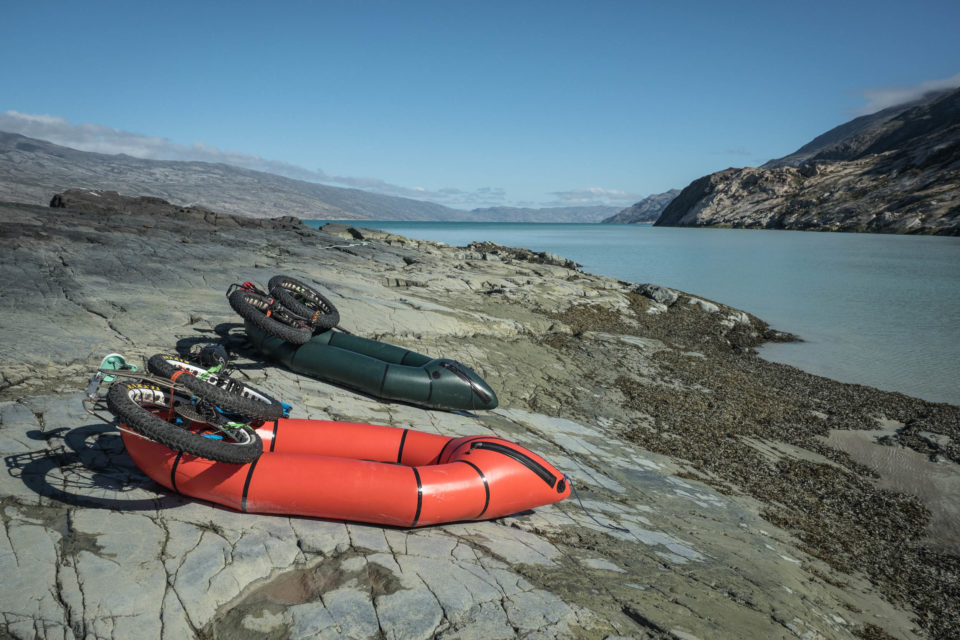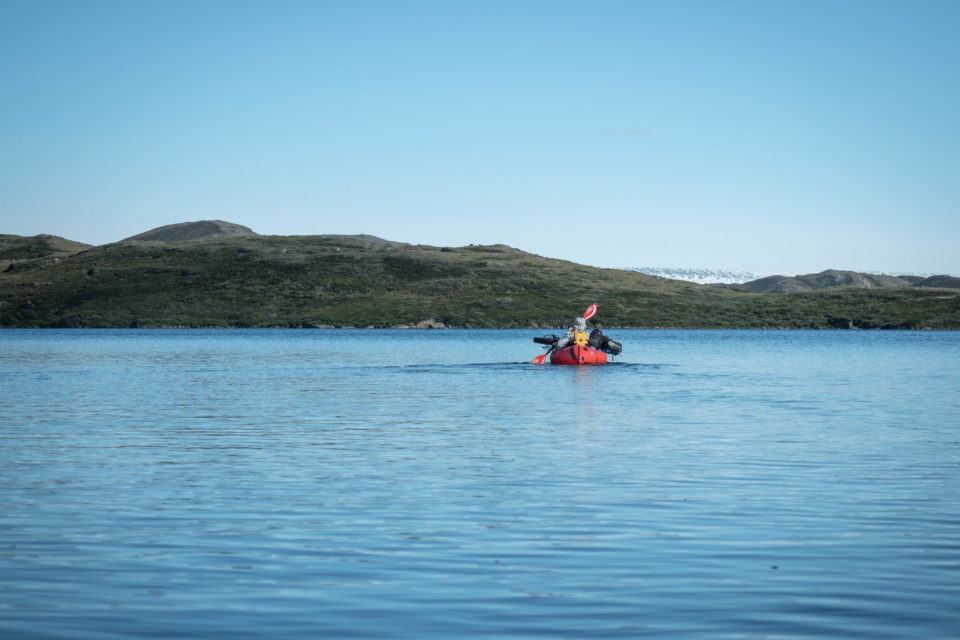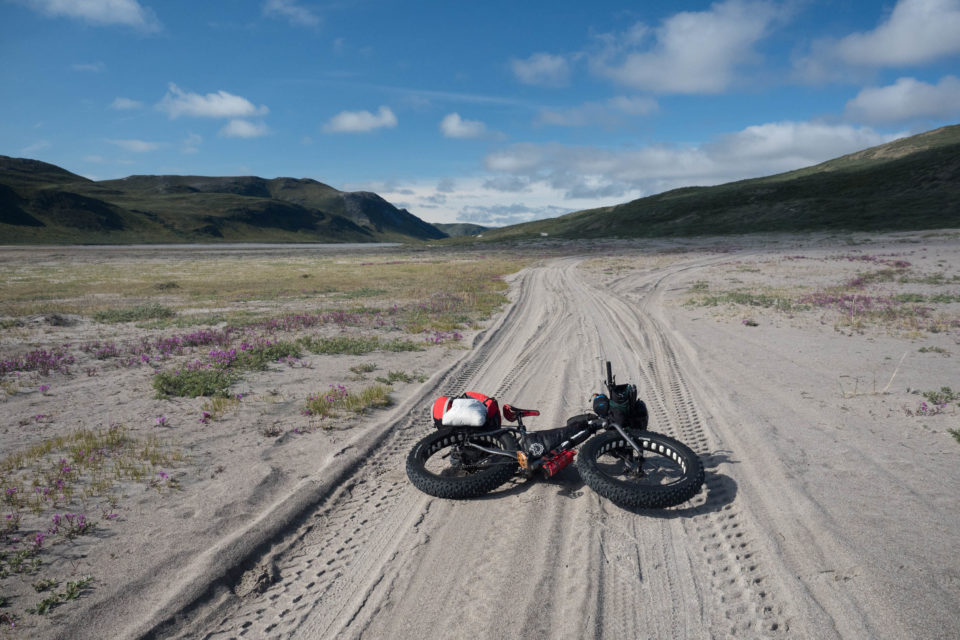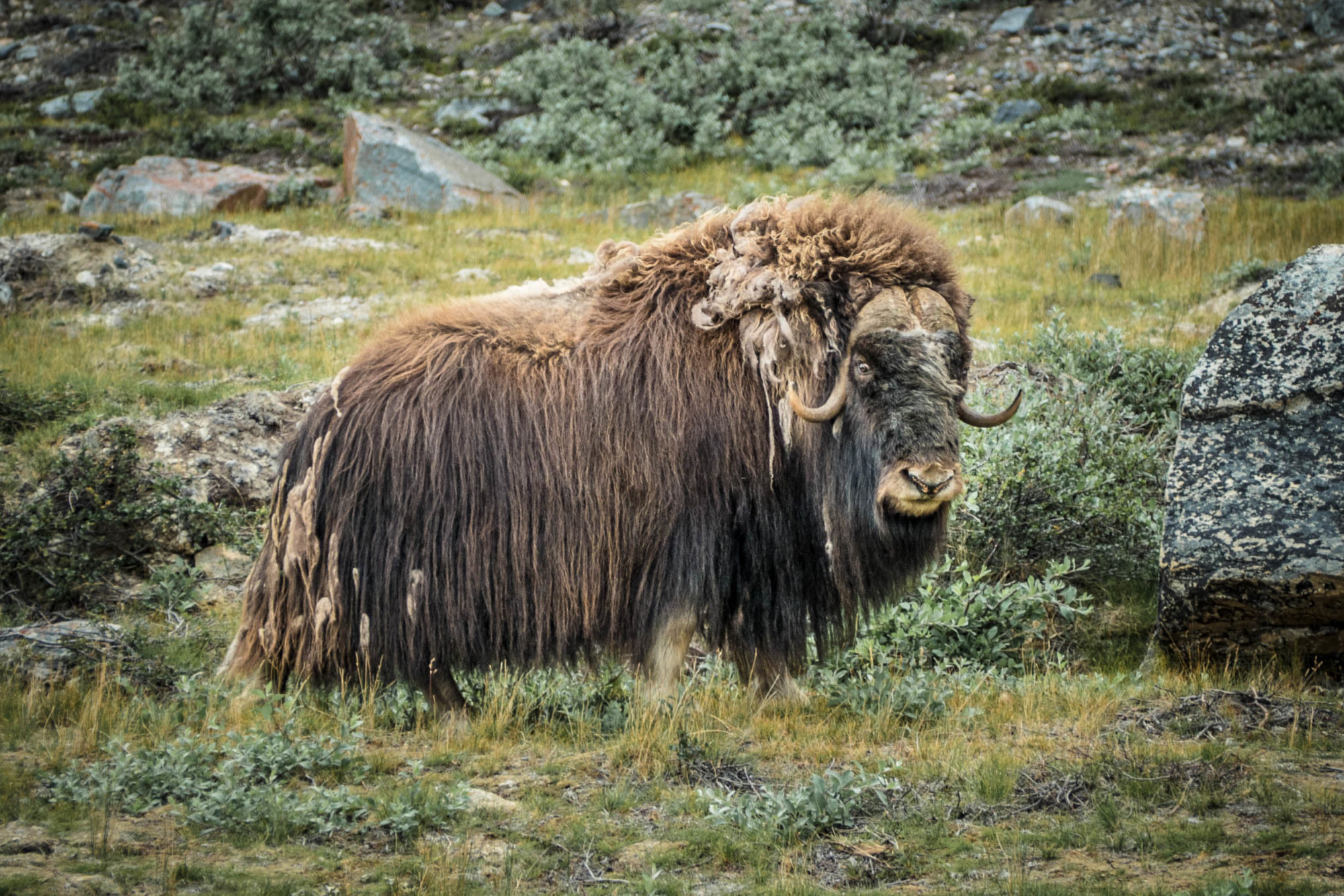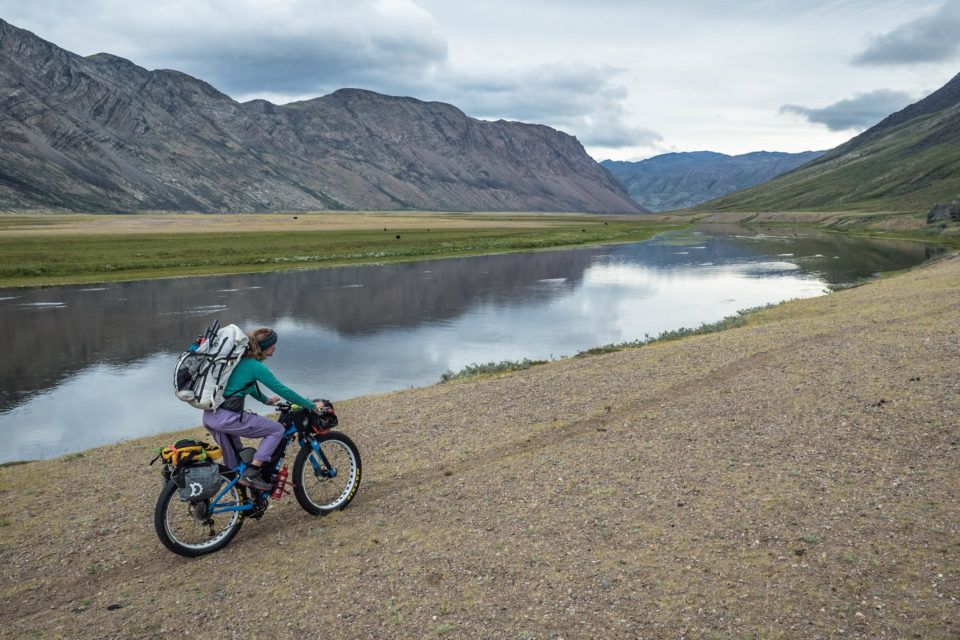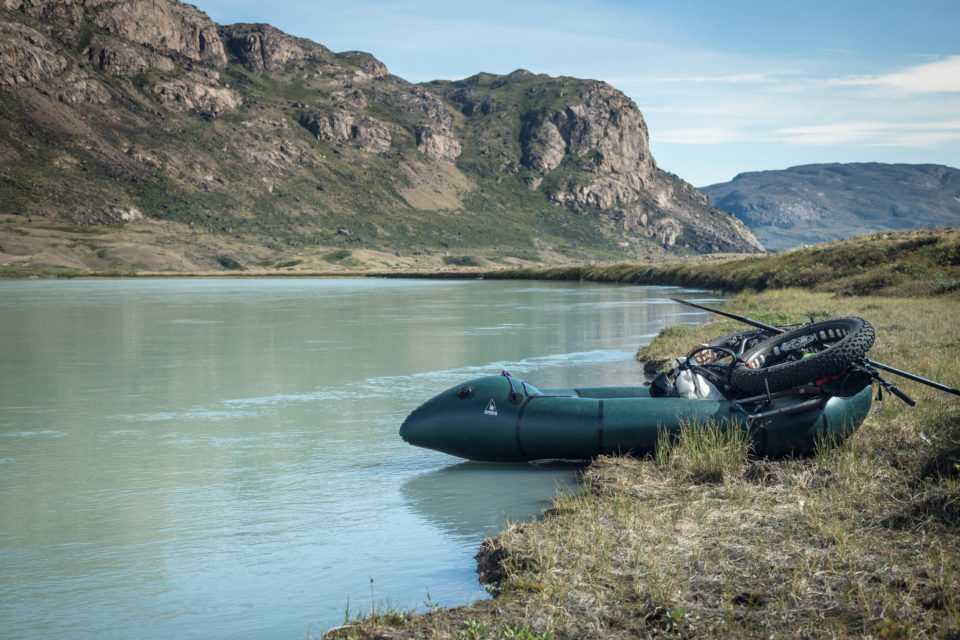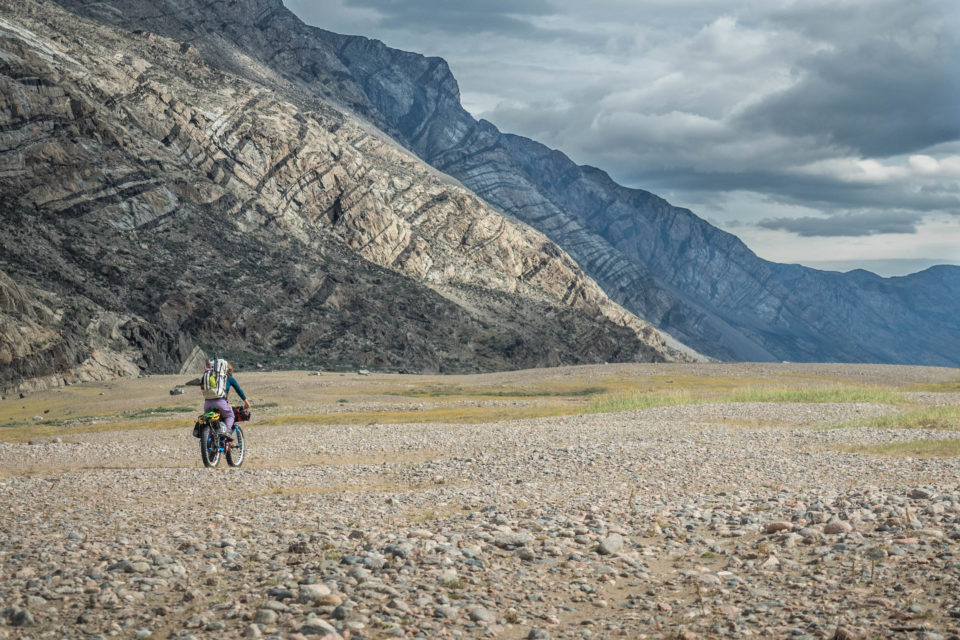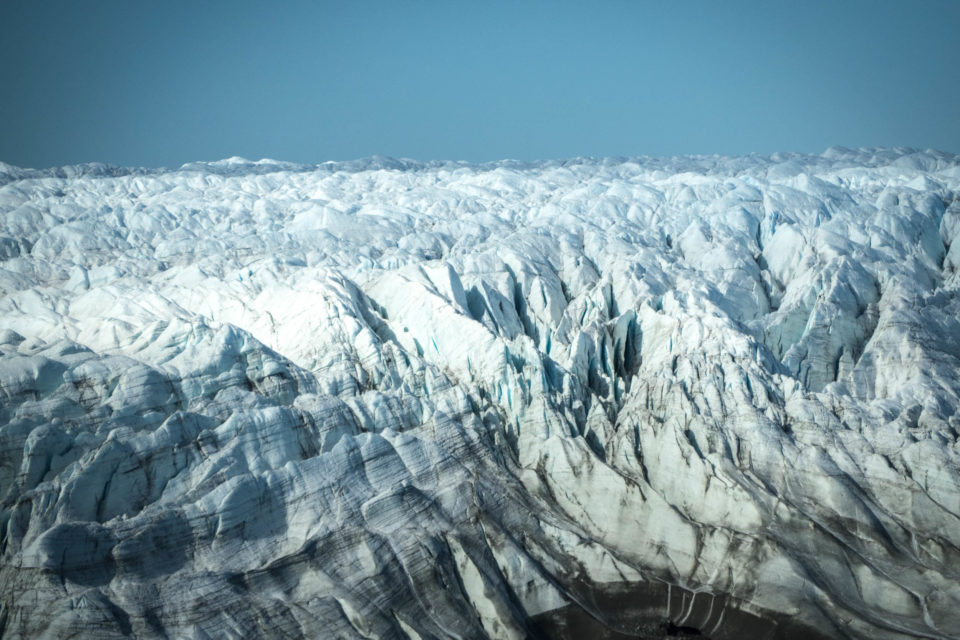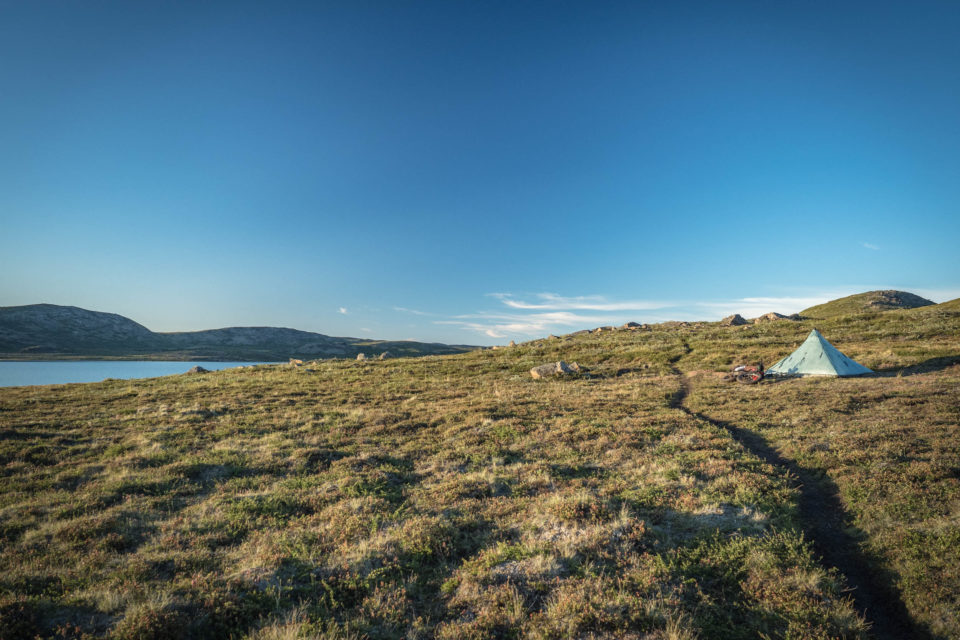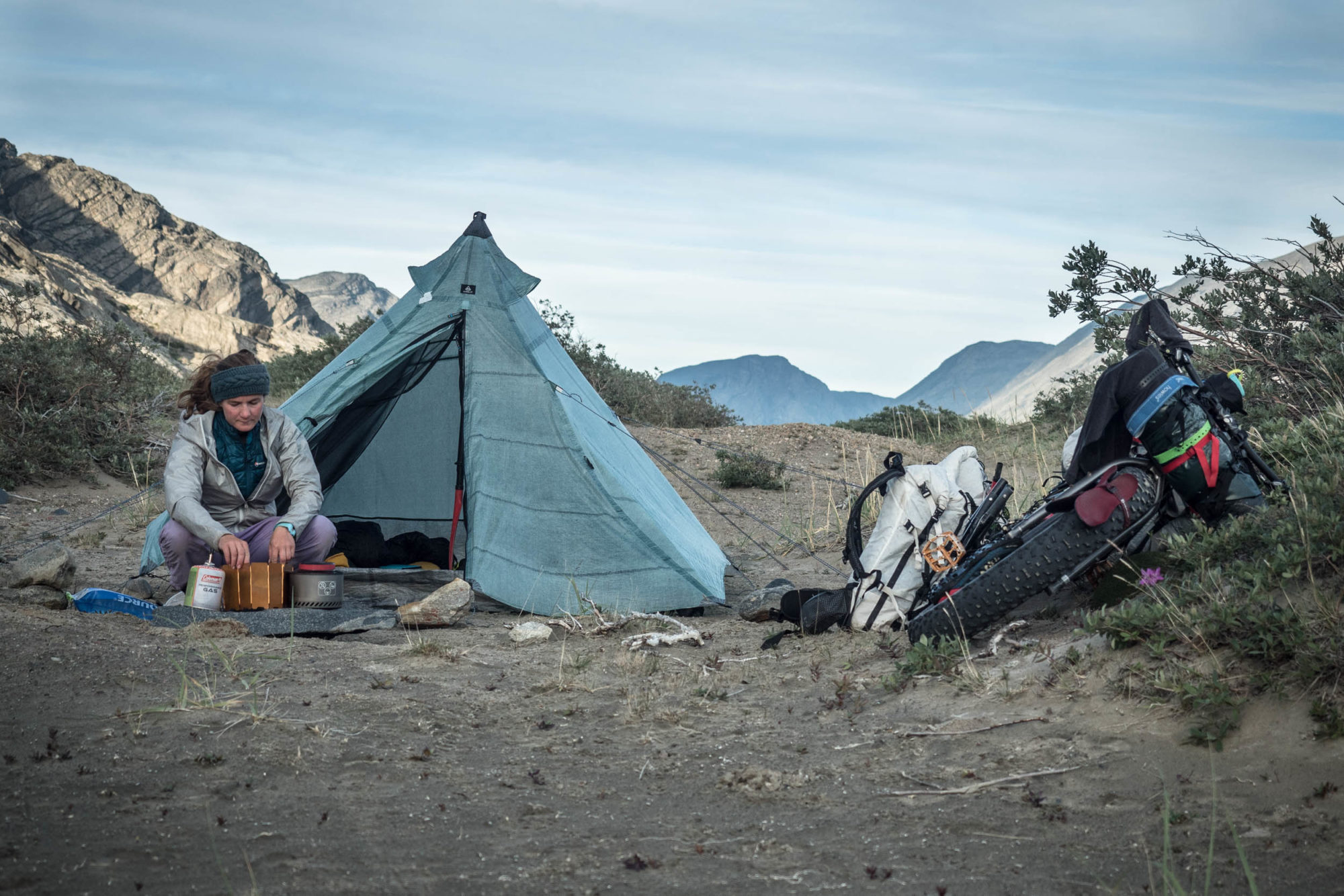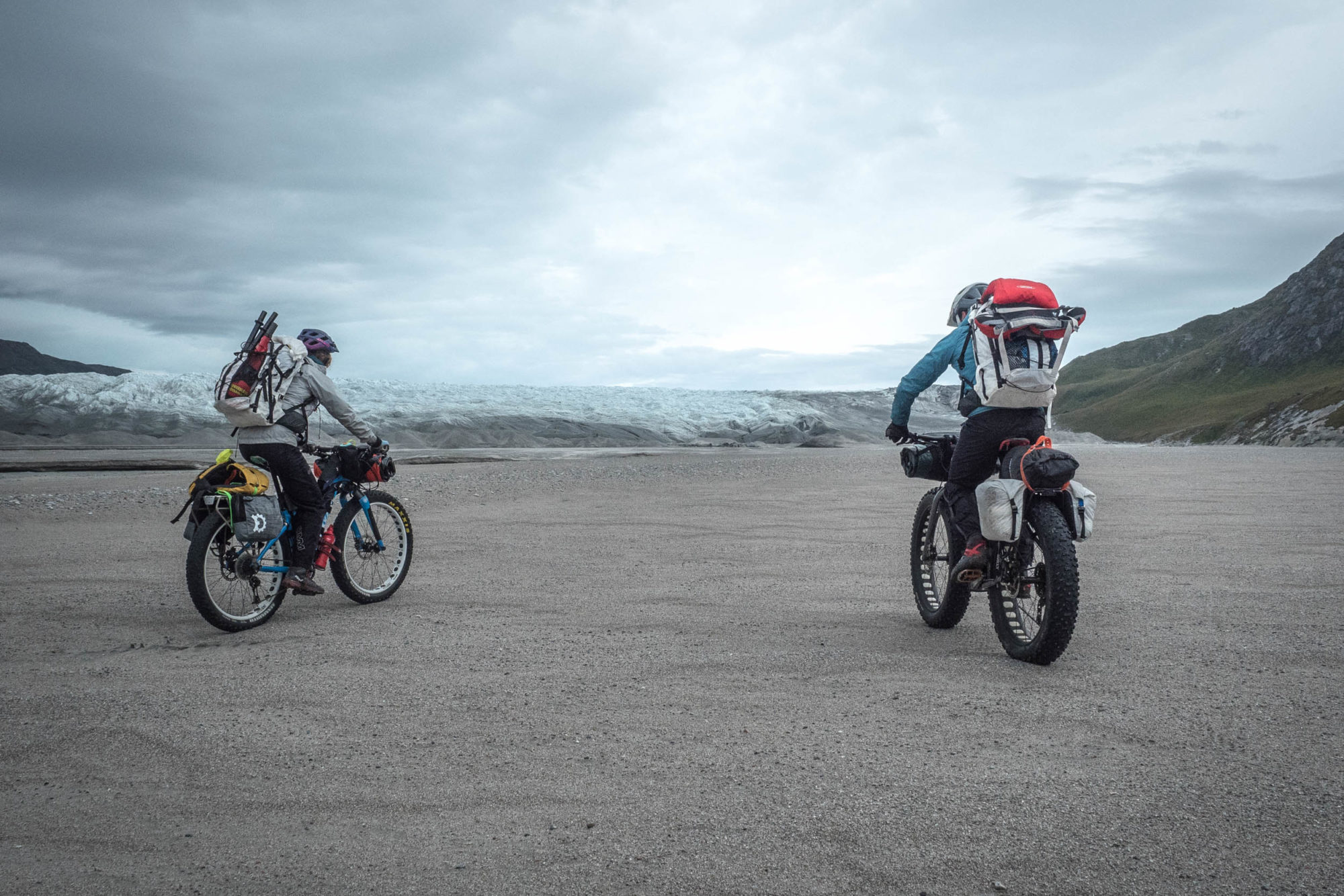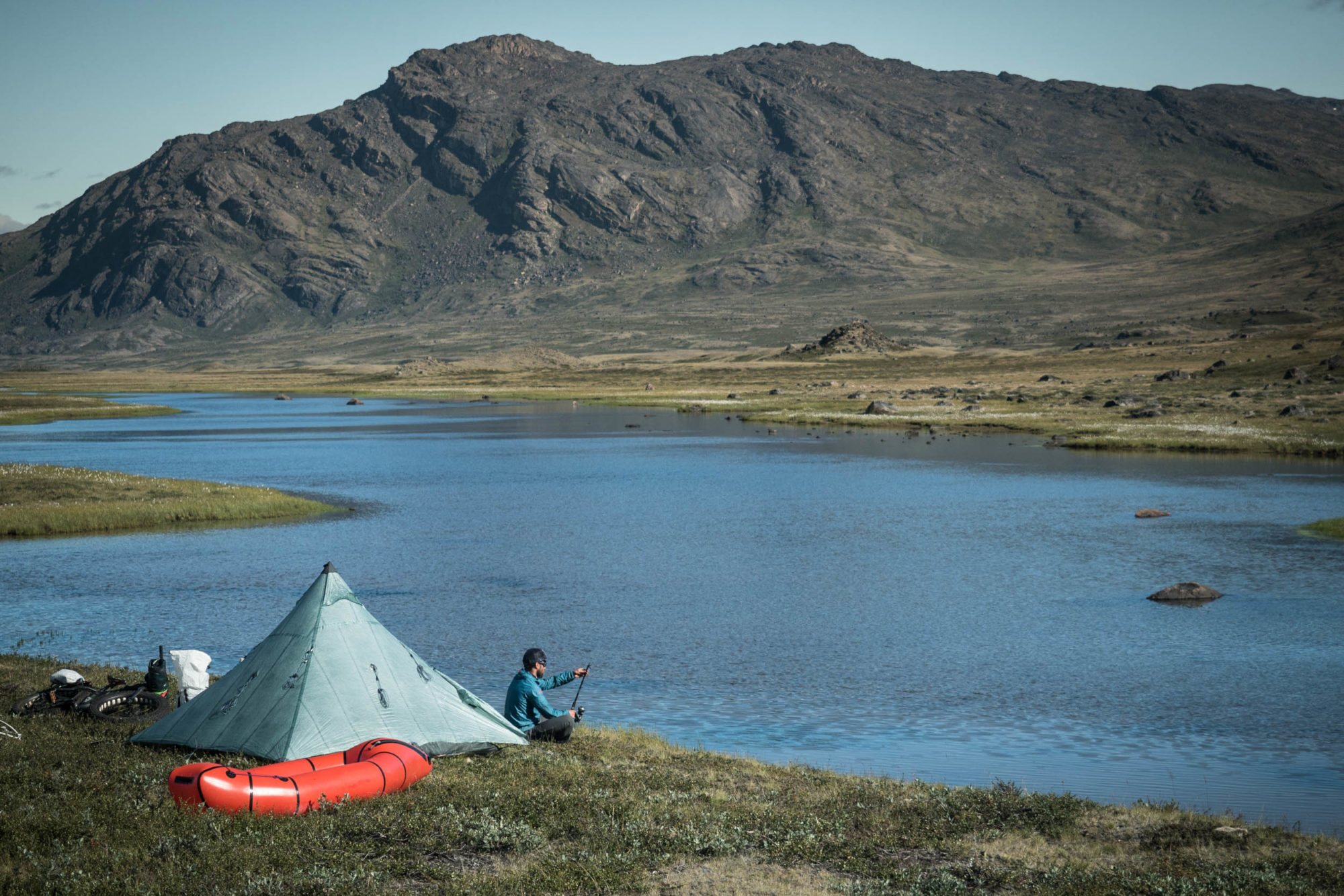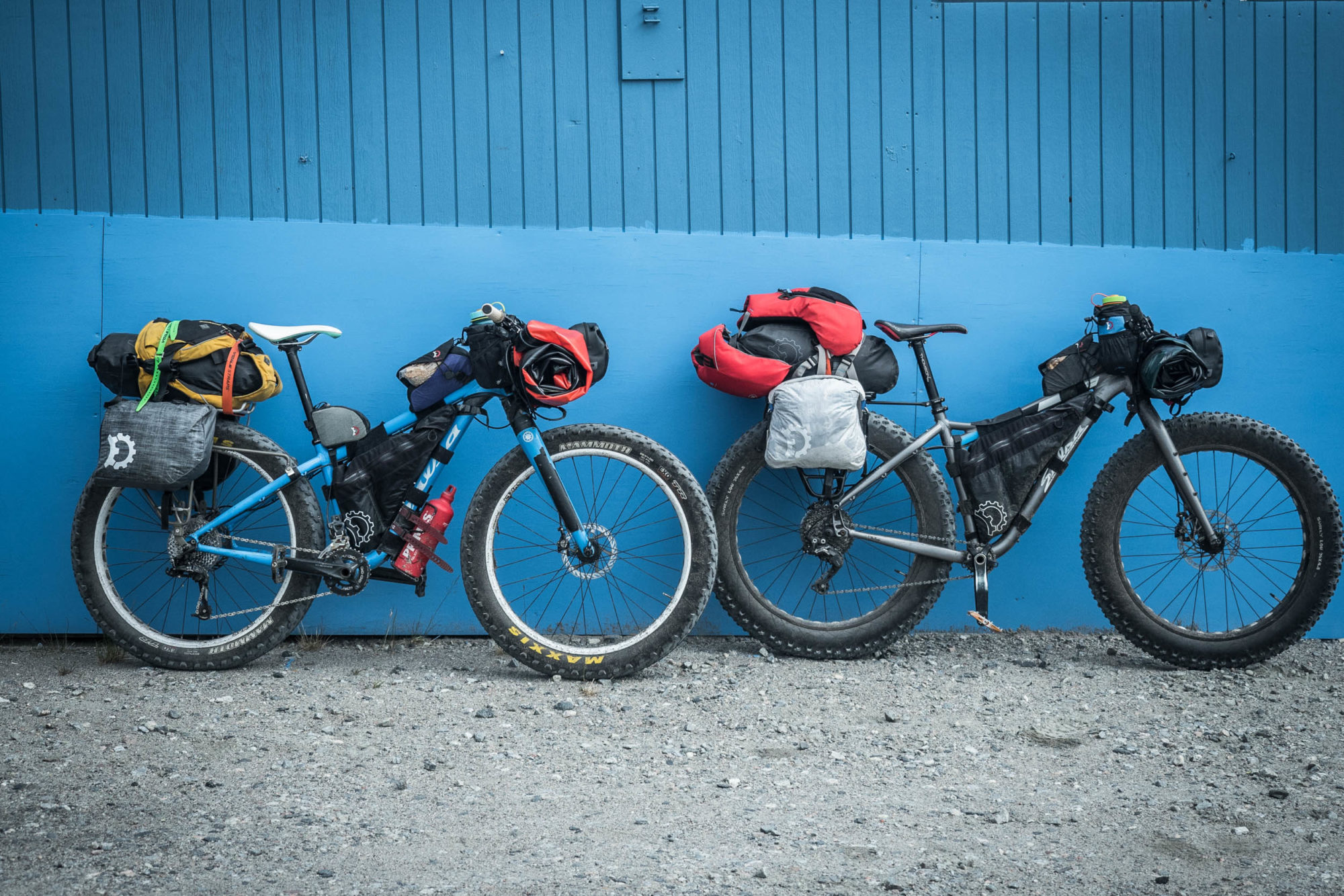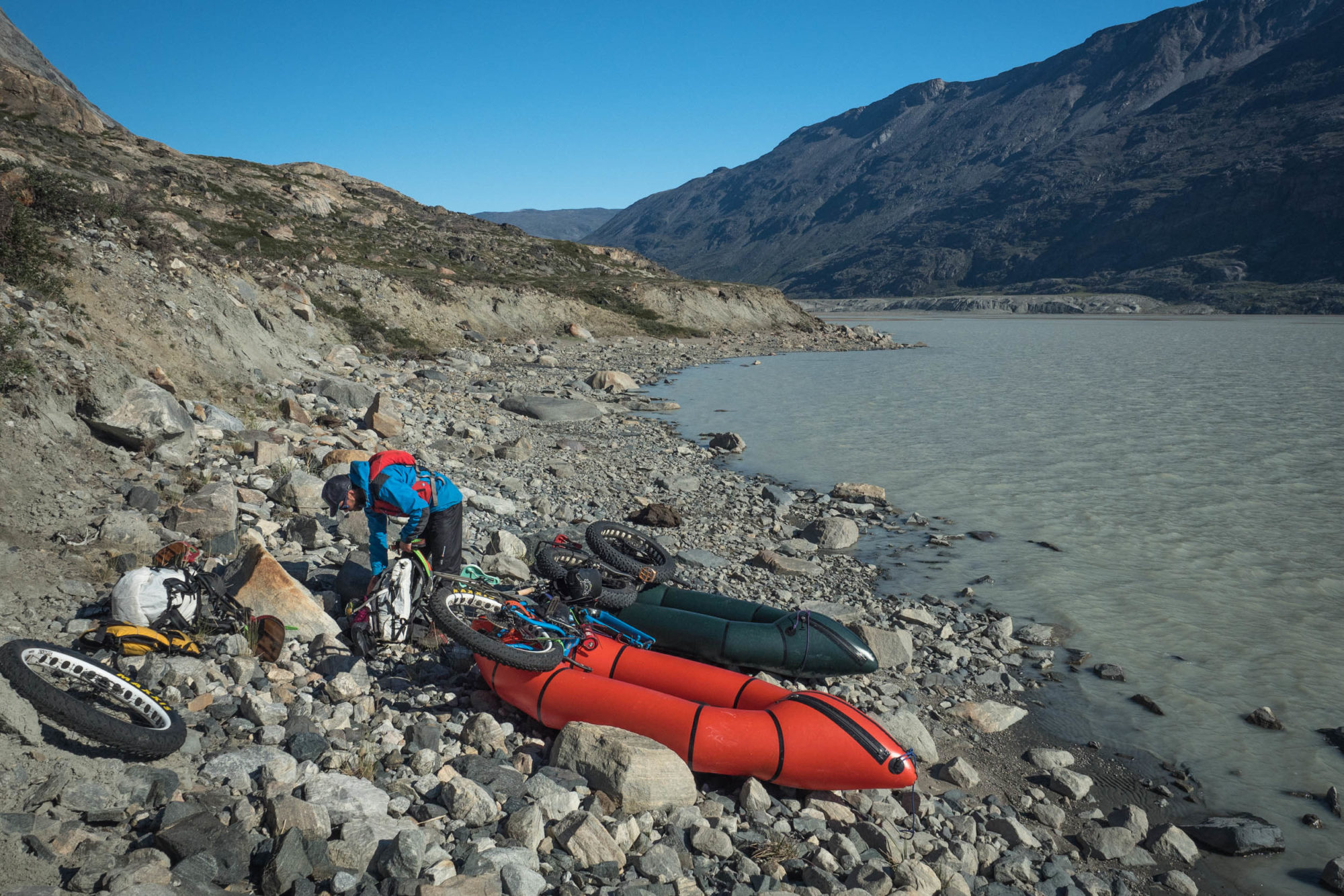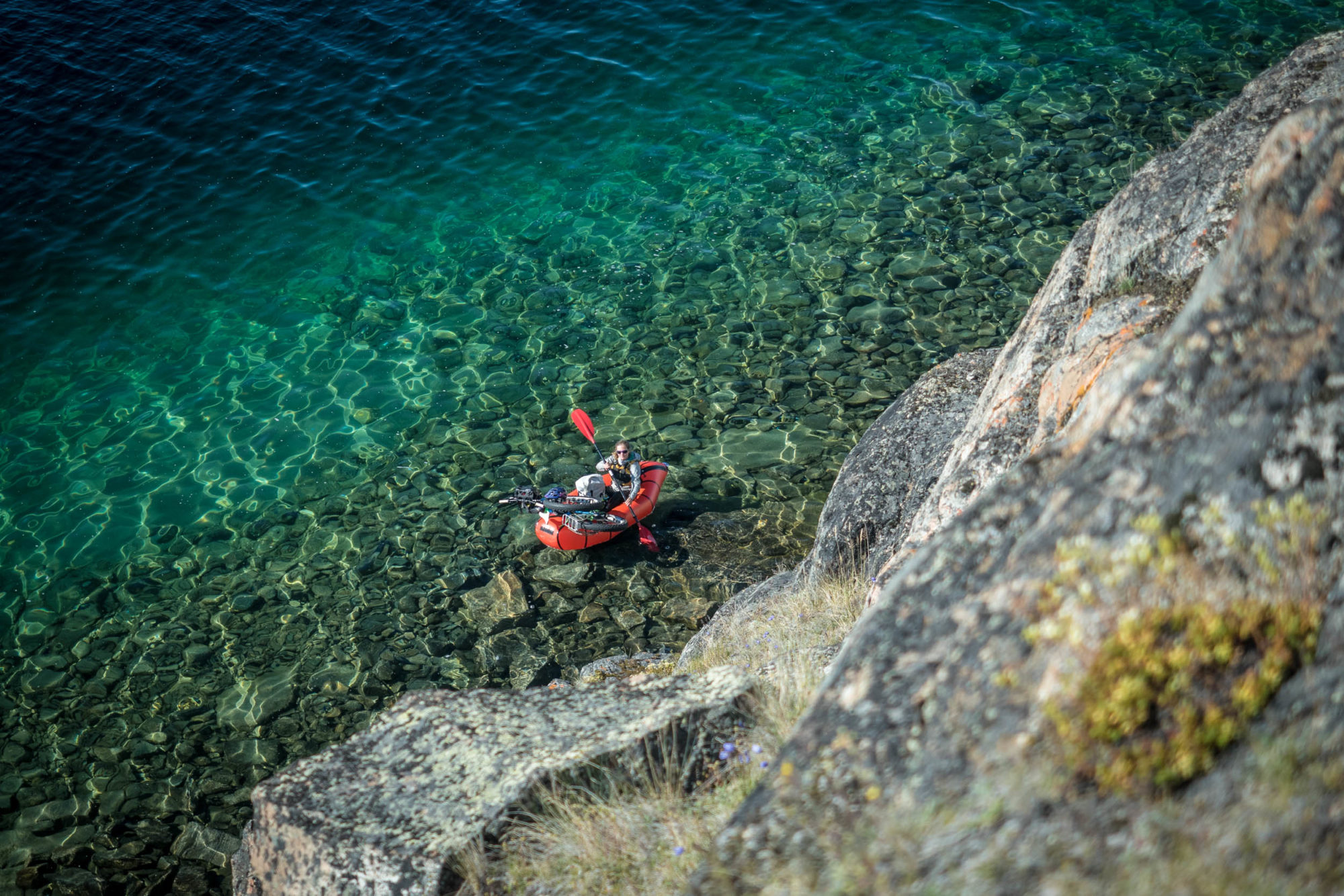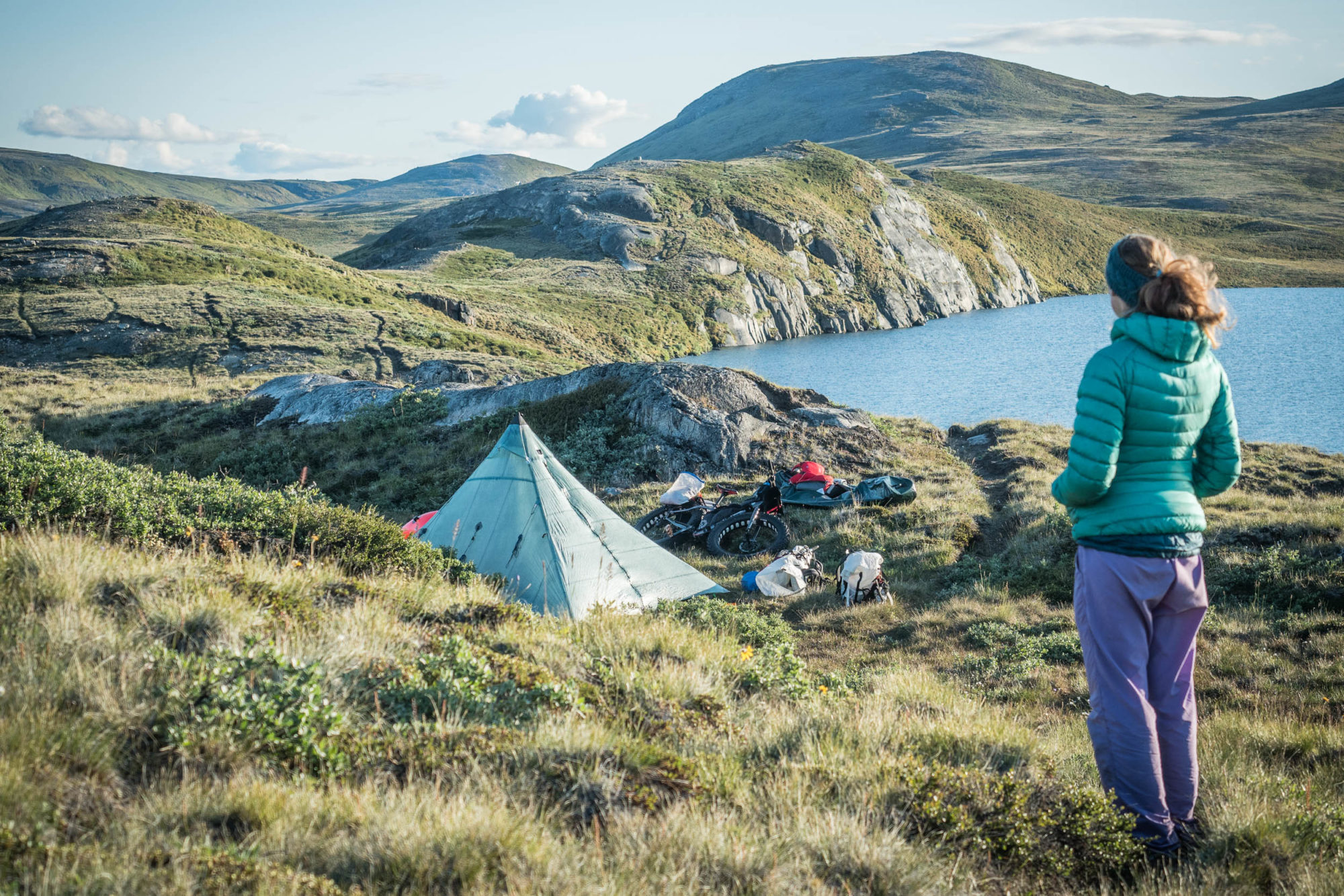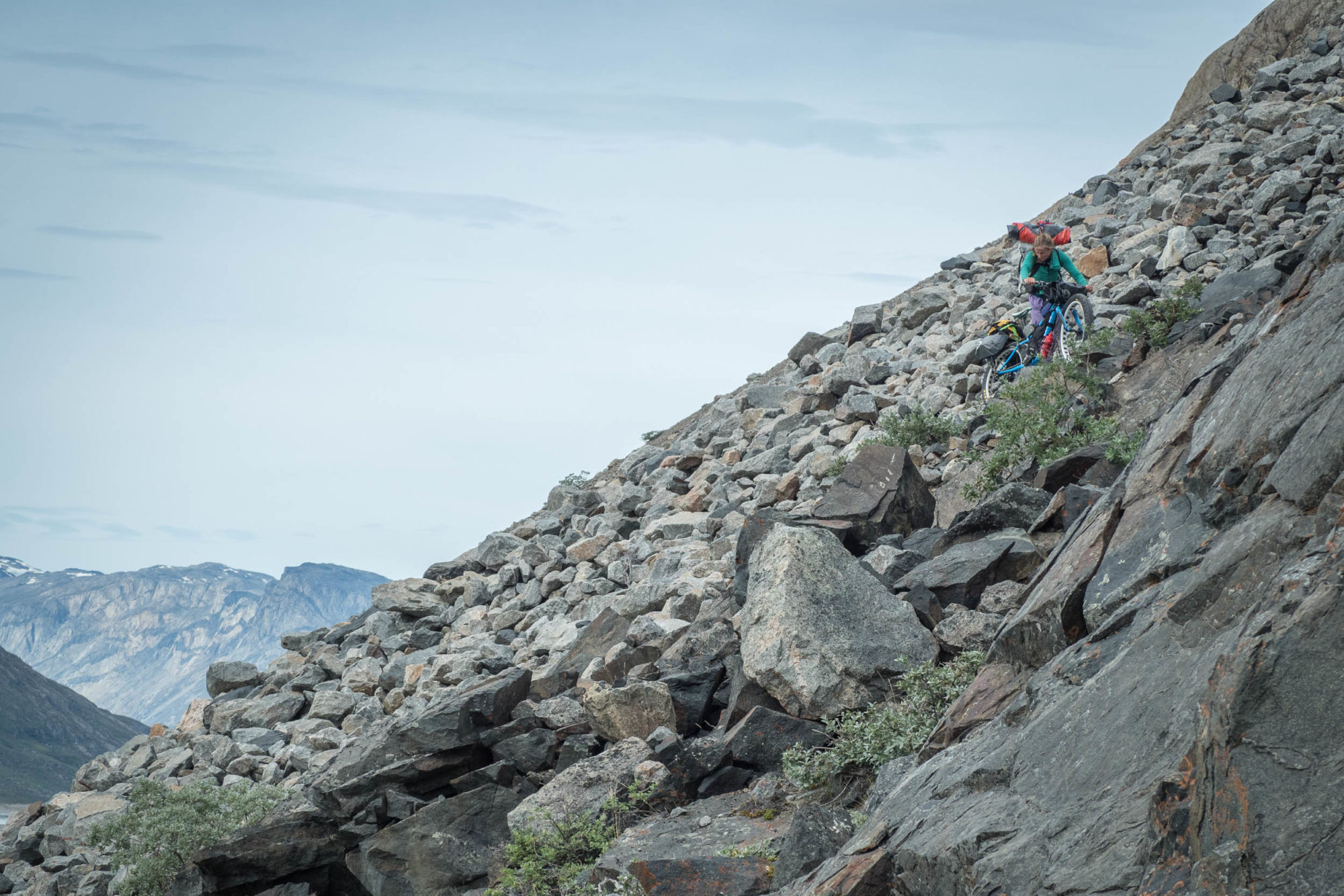index.md 23KB
title: Breakfast with Muskox (Film)
url: http://www.bikepacking.com/plog/breakfast-with-muskox-film/
hash_url: 4769d145b2
Just debuted at the Fort William Mountain Film Festival in Scotland, Breakfast with Muskox is a new film by Annie Le that showcases Greenland like you’ve never seen it before. Although, you might recognize some of the scenery from Boundless, a story written by her partner Huw Oliver for the first issue of our printed publication, The Bikepacking Journal, which we also recently published as a web feature, here. Watch the full film below, then read on for a Q&A with Annie about their trip, along with a stunning selection of exclusive images.
Greenland is far from a popular or practical travel destination. What drew you to it?
Greenland caught our imagination a while back, when I first read something about the Arctic Circle Trail. Although it’s not actually a good trail for riding as it is very rutted and difficult to follow, it got us thinking about Greenland, and once it was in our minds we couldn’t get it out. We spent hours on satellite imaging and soon started to see potential to do something very different, using our packrafts alongside bikes to reach some remote and inaccessible areas. Greenland is also a fairly untouched wilderness, although hunting has been and still is very much a way of life, the landscape has not been altered by human hands in the same way that the Scottish land has. It really appealed to us to be able to observe an ecosystem that functions without human meddling and looks much as it would have hundreds of years ago.
Have you made other films before? What motivated you to create Breakfast with Muskox?
Along with my partner Huw, I have made a few wee films before. We don’t have any fancy equipment, though, so we just have a bit of fun using the camera we have. I thought it would be nice to make a short film of our time in Greenland, as sometimes a photo can struggle to capture the real essence of a trip. You get these beautiful snapshots of a moment in time, but it can be harder to convey the emotions and frustrations that accompany them. I also felt that what we were doing in Greenland might be so different to our usual type of trip that it might be interesting enough to warrant making a film.
What went well, and what went totally awry while you were out there?
Our first plan turned out to be a bit of a disaster. The river that we had hoped to paddle from the glacier to the sea was surrounded by deep, terrifying quicksand. We found this out after paddling a short distance, getting beached on a sandbar, and trying to get out to drag the boats to a deeper channel. We were sinking over our knees in the awful clinging mud, and it took us around an hour to get the 200 or so meters back to safe ground. The other issue was that as the powerful water shifted the sediment, it built huge wave trains that came and went. As we had being relying on the ability to portage around any big rapids, and found out we couldn’t, we made the decision to change our route.
Fortunately for us, our plan B turned out to go better than we could have predicted. Having only seen two photos of the valley we wanted to ride up, it was quite a big leap of faith to assume that it would be good for all 100 km of it. Whilst it was certainly challenging in places, it was mostly a delight to ride.
What’s something that surprised you about Greenland?
The west Greenlandic landscape turned out to be much more varied than we had expected. It’s a tricky place to research, and we were never quite sure what we would find. Instead of the endless wind-scoured tundra that we thought might dominate the land, we found ourselves riding over miniature forests of dwarf birch and arctic willow. Wildflowers were abundant up near the icecap, and the small delicate blossoms contrasted spectacularly with the massive angular ice. We rode through valleys with huge deserts, where the wind had blown fine glacial silt, and water was hard to find in the rain shadow of big mountains. The rock type and scenery were so constantly varied that it was always exciting to turn a corner and see what would change around it.
How much time did you spend on the bikes vs. in the boats? Which was more challenging?
We ended up paddling and riding in fairly equal measures. Although the riding was far from straightforward, and often very physical on rough, boulder strewn ground, the paddling was much more challenging. In theory, the fjord should have offered fairly dull conditions for packrafting, but we found that the combination of wind and fast tides created a dynamic and varied paddling environment. Small tidal rapids added interest in calm conditions, but once the wind had whipped up a swell, we experienced waves coming over the side of the boats and had a few sections that were tricky to navigate through. Decision making on the water is also much more serious. When it came to crossing the fjord, a distance of around 4 km, we had to get it right. Reading the weather, knowing the tides, and making the right choices at the time were what kept us safe and made the paddle enjoyable rather than an epic.
Can you tell us a bit about your bikes and why you chose them for this trip?
We both took 2015 Salsa fat bikess. I rode a Beargrease running 4” tires on 60mm rims, and Huw was on a Blackborrow with 5” tires on 100mm rims. In my opinion, the lightness of the Beargrease makes up for the reduced tire volume in comparison to the Blackborrow. It was only in the higher valley, on the bigger boulder outwash, that I felt he had an advantage. We’ve had these bikes for a while, and they proved themselves just as reliable while crossing Iceland in winter and more recently when riding ski trails in Sweden. We know them well and are confident taking them to remote environments where you put a lot of trust in your kit. The higher volume tires make it possible to ride over mixed terrain, or often where there’s no trail all. They performed well on both the fine sands of the deserts and while rolling over the lumpy, rocky outwash plains.
Any additional advice for aspiring bikerafters, beyond what you and Huw wrote in your beginner’s guide to bikerafting?
Give it a try! It can feel cumbersome with so much kit, but once you’re used to it, it’s a wonderful thing to mix cycling and paddling. If you don’t come from a paddling background, spend some time using the pack raft without a bike and gaining some skills and knowledge. Never underestimate the wind or the river. Try different ways of attaching the bike to the packraft (Voile straps are amazing) and make sure you can self-rescue with the bike on the boat. You will be colder on the paddling section compared with the bike, so have extra layers. Be mindful that there’s always a chance you will get wet, so make sure you are prepared for this and have all your kit in dry sacs. Once you’ve tried out your kit on a few shorter trips, start looking at the map and seeing all these new and exciting places you can go.
Lastly, where can we expect to see you riding or paddling next?
This is a tricky one, as there are so many amazing places in the world and never enough time or money to get there. I’m hoping to fit in a very Scottish bike rafting trip early this summer, fingers crossed the weather plays ball with free time! Aside from that, I’m planning to race both the Arizona Trail 350 and the Colorado Trail Race. Then, as Huw has recently moved to Canada, hopefully I will get a visa so I can join him, and there are some epic bike rafting trips to be had out there.

